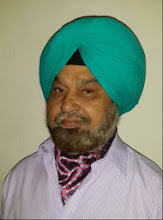We need to assimilate nuances of CMR in the shortest possible time, lot has been missed since independence. US CMR could be one example to develop Indian Model of the CMR. Study of UK Model may not be very apt.
Just Note how well articulated recent visit of The Chairman of the US Joint Chiefs of Staff, Admiral Mike Mullen, was in the scheme of the US:
India to Learn How US Integrates It’s Military Leadership into the ‘System’ to Promote US National Aims & Objectives
CMR as a 'System' in the Indian Context has a lot to offer. We need to shed protecting our 'turfs' for the national good. All our intellectuals should see the Relations holistically much beyond our tainted sights; this is applicable to both civil and military leadership.
SvipjaCMRChair
Svipja Technologies
Just Note how well articulated recent visit of The Chairman of the US Joint Chiefs of Staff, Admiral Mike Mullen, was in the scheme of the US:
India to Learn How US Integrates It’s Military Leadership into the ‘System’ to Promote US National Aims & Objectives
CMR as a 'System' in the Indian Context has a lot to offer. We need to shed protecting our 'turfs' for the national good. All our intellectuals should see the Relations holistically much beyond our tainted sights; this is applicable to both civil and military leadership.
SvipjaCMRChair
Svipja Technologies


